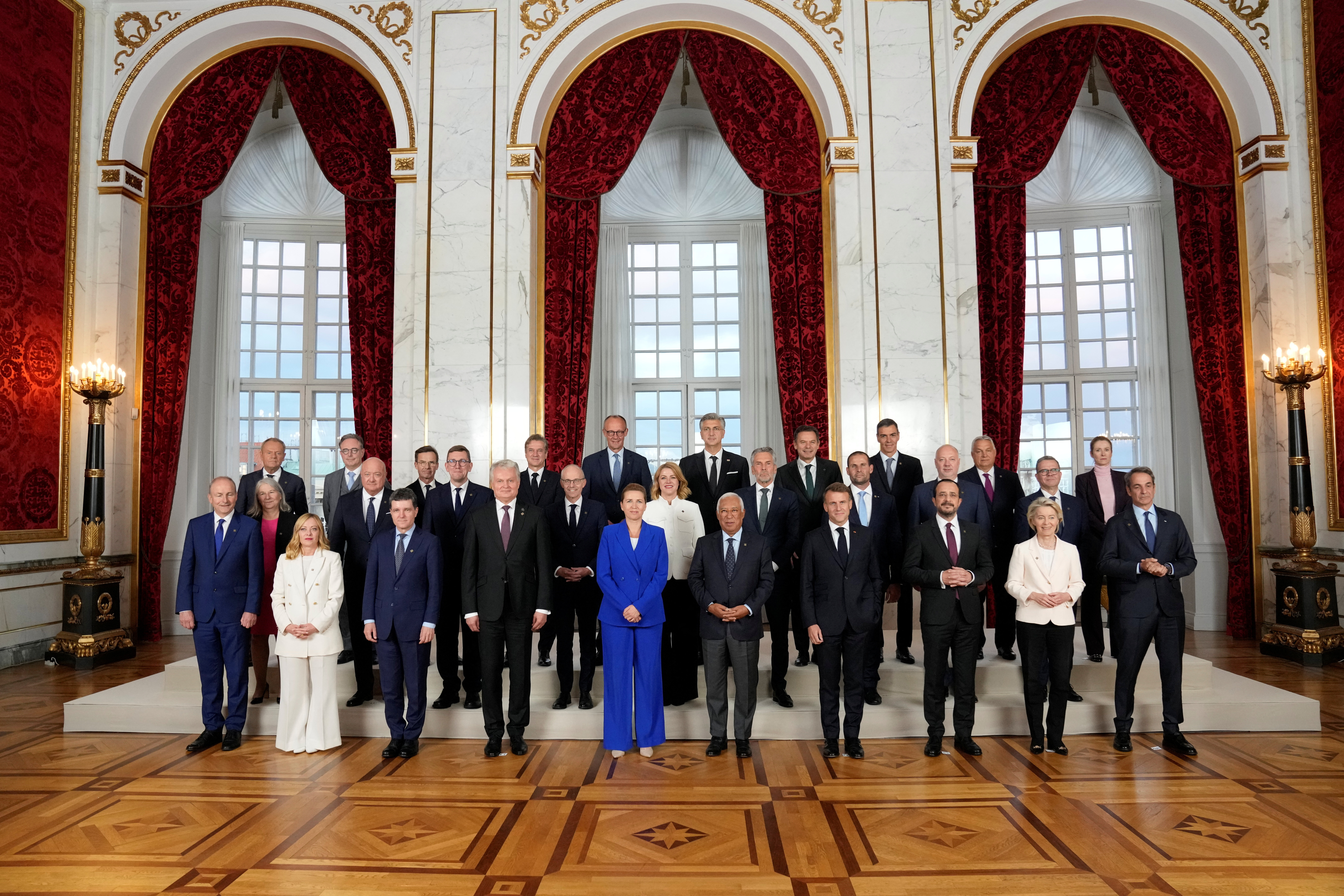There are two key issues that divide today’s (1.10.25) emergency summit of the EU in Copenhagen, for Ukraine and Russia. One is the proposal for the “seizure” of Russian assets and the second is the anti -drone wall.
The informal EU summit today was dominated by airspace violations in several European countries from Russia. Last week, Denmark temporarily closed Copenhagen Airport after detecting drones of unknown origin. Three weeks ago, NATO fighter aircraft shot many Russian drones over Poland.
The heads of governments of the Baltic and Scandinavian countries used the last incident as an opportunity to repeat their appeals for a drone defense system, a “wall of drones” on the east side of NATO.
‘Important gaps’ in defense by drones
“The drones in Copenhagen emphasize how difficult the security situation is,” said Finnish Prime Minister Petteri Orpo. Europe is involved in a “hybrid war” with Russia, citing issues ranging from unmanned aircraft and cyberattacks to Baltic Sea cables and illegal migration.
It is not yet clear who is hiding behind drones over Denmark. However, more than one government leaders considered the Kremlin responsible. “Drones are no longer just flying over Ukraine,” said Latvian Prime Minister Evika Silina. “Suddenly, they even arrive in Denmark.”
Lithuanian President Gitana Naoussa said there are “significant gaps” in the detection and defense of the drones. The principle of NATO alternation, according to which the resources are transferred to the east side in a short period of time, is not sufficient. The EU must invest more.
Referring to the new plan of the European Commission (Commission) for a “wall of unmanned aircraft”, Naoussa stated: “Documents are not defense. We need actions. ” It is the duty of the Eastern Europeans “to convince other colleagues that these are not only our national borders, but also the EU’s external borders.”
German Chancellor Friedrich Mertz and French President Emmanuel Macron, however, stressed that it is not yet known who is hiding behind drone flights over the Danish territory. “We’re trying,” Macron said. But we must “be careful and avoid escalating”.
Mertz thanked the German Air Force and the Navy “who allowed this meeting to be safe”. The Bundeswehr had developed 40 troops in Copenhagen to help with a drone defense. The German frigate “Hamburg” also sailed off the coast.
Southern Europeans are cautious about ‘drone wall’
Opinions are still diverted about the necessity of a “drone wall”. Southern Europe’s leaders, in particular, fear that the limited EU defense funds could flow disproportionate to the East.
Danish hostess, Meet Fredericksen, appealed to the present to leave the national perspective behind them. “One day it will be Poland, the next Denmark,” he said. Russia’s hybrid war is an “attack throughout Europe” and requires a “strong answer”.
He added that a hybrid war is characterized by the inability to defend over all attacks. Therefore, Europeans will never be able to completely prevent drones from entering the airspace anywhere.
Wide support for the use of Russian reserves
Wide support has arisen for the Commission’s proposal to use the Russian Central Bank’s frozen funds to fund Ukraine. French President Macron said this was a “very good thing”.
Last week, Mertz had already abandoned the German resistance and supported the use of 140 billion euros from the 194 billion euros of frozen Russian funds kept in the Euroclear Belgian Central Settlement for Ukraine.
The Commission wants to use cash as guarantees for lending to Kyiv. Russian assets will remain frozen until Moscow pays compensation in Ukraine, which could be used to repay the loans.
This is aimed at securing Ukraine funding for the next two years – a clear message to Russian President Vladimir Putin that Europeans will not hesitate to support them.
For the first time, the proposal could “square the circle”, a senior adviser to the Champs Elysians said. Specifically: “Continue support for Ukraine without at the same time resorting to the seizure of assets.”
In the upcoming discussions, France wants to ensure that there are several conditions: legally, it should not include seizure of assets. In addition, the risk should be fairly distributed between partners – they want to ensure “that their own public finances are not burdened, irrespective of Ukraine -expected offenses for these loans”.
It should also be clear that the funds will be linked to reform steps towards joining the EU and will primarily benefit the European defense industry, the official said.
The big question is whether governors can also persuade their Belgian counterpart, Bart De Wever. He had strongly oppressed the Russian assets because, as the headquarters of Euroclear, Belgium did not want to be held responsible. Today he went in front of the cameras without saying a word – obviously he was not yet ready to commit.
